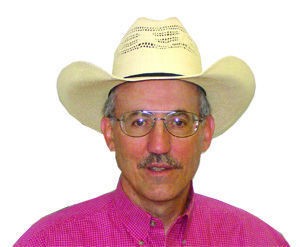I recently conducted four seminars at the SCI Convention in Reno. As is usual, there were tons of world class mounts. Some of the taxidermists nowadays can only be described as artists. Some of their displays were unbelievable. Katy burned up a lot of film taking pics of the mounts and displays.
Between seminars I had multiple media luncheons and then hit as many booths as I could. There were a lot of awesome guides present from all over the world.
There were so many booths that there is no way that I could have hit them all. But luckily, I did stop by the GAJOGO Safarilands booth and meet Gary R. Goltz. We’re looking at doing some stuff together. But for now I want to write briefly about some of his conservation efforts.
In talking to Gary, it reminded me of what great conservationists that outdoorsmen are and made me proud. That is not a message you hear much about today. To illustrate what I’m talking about I’ll share some of his story.
If you read any stories about safari hunters in the mainstream media, you are led to believe that they fly to Africa, pay a lot of money and shoot an elephant or lion in a cage and fly home and brag about it.
I’m sure the people that propagate these misconceptions honestly care for animals but they end up doing a lot more harm than good for the animals and the indigenous people in Africa. Let me explain.
Right before Gary took over the 1.1-million-acre reservation that he is running, it had been abandoned by all forms of management. The natives had built their huts by the few watering holes that were there, which starved off most of the wildlife.
They also poached all the game they could for food. Poachers ran amuck, and the Chinese poachers aren’t good guys. To further exacerbate the problem a drought hit. When Gary hit the scene there was no wildlife left to speak of.
Since that first day, he has been busy digging water wells for humans and wildlife alike. He has also helped establish villages. From the hunts that he guides he provides meat to the villagers, which keeps them from having to poach.
The work building blinds, cooking, cleaning camp, helping guide, tracking animals, skinning animals and processing game all provide jobs and income for the villagers. Otherwise, many of them would have no income at all.
So when some Hollywood mentality type of person boycotts to eliminate hunting rhinos, lions etc. they cause major disruptions and harm for the villagers and also mass destruction for the animals that they claim to be helping. Due to the money raised from hunters they are able to afford to pay law enforcement to combat poachers.
So far I believe Gary said that he has hauled in 250 cape buffalo and seven lions that he released on the preserve. He is building the environment and the people back to what it could be. I understand how you may have originally thought that it is counterintuitive to think that hunting can actually benefit and make wildlife prosper. But upon checking out the facts you will find that it is so.
I won’t go into detail because it would sicken you, but the poachers are plenty cruel. Gary showed me a layout of the traps that had been confiscated. I didn’t count but there appeared to be hundreds. And they don’t check their traps daily like a normal trapper in America does. And they don’t tie them down or use a drag. Many of them will chase down the trapped animal and kill them with crude axes.
Needless to say, things are prospering and it looks like there is a bright future ahead on the hunting preserve that Gary is managing. Look for more articles to come over the next year on this project. And good luck Gary.
Tom Claycomb lives in Idaho and has outdoors columns in newspapers in Alaska, Idaho, Utah, Nevada, Colorado and Louisiana. He also writes for various outdoors magazines and teaches outdoors seminars at stores like Cabela’s, Sportsman’s Warehouse and Bass Pro Shop.



